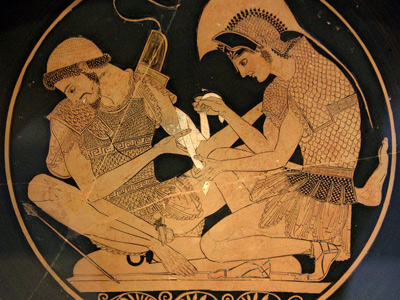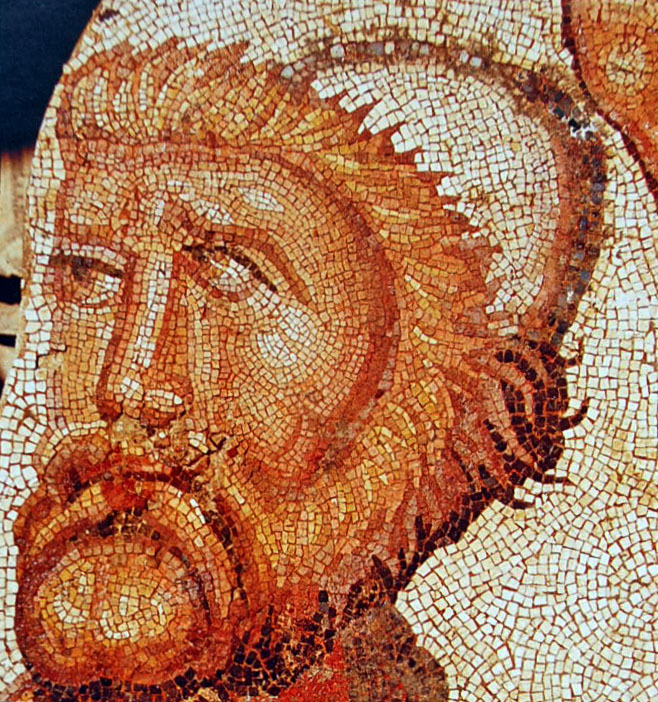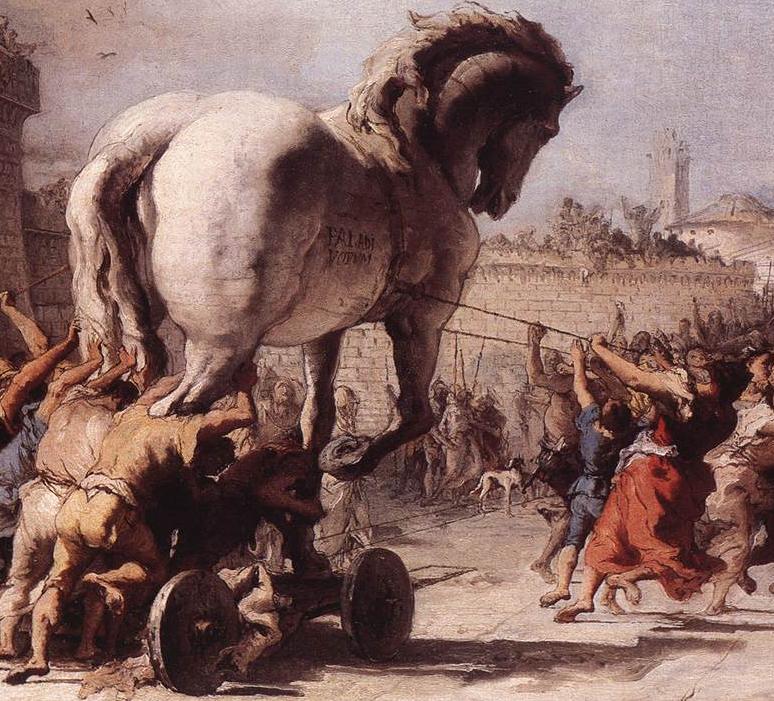Trojan War (1194–1184 BC)
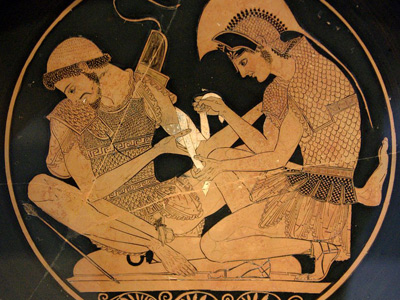
Gathering of Achaean Forces and the First Expedition
According to Homer, Menelaus and his ally, Odysseus, traveled to Troy, where they unsuccessfully sought to recover Helen by diplomatic means.
Menelaus then asked Agamemnon to uphold his oath, which, as one of Helen's suitors, was to defend her marriage regardless of which suitor had been chosen. Agamemnon agreed and sent emissaries to all the Achaean kings and princes to call them to observe their oaths and retrieve Helen.
Odysseus and Achilles
Since Menelaus's wedding, Odysseus had married Penelope and fathered a son, Telemachus. In order to avoid the war, he feigned madness and sowed his fields with salt. Palamedes outwitted him by placing his infant son in front of the plough's path, and Odysseus turned aside, unwilling to kill his son, so revealing his sanity and forcing him to join the war.
According to Homer, however, Odysseus supported the military adventure from the beginning, and traveled the region with Pylos' king, Nestor, to recruit forces.
At Skyros, Achilles had an affair with the king's daughter Deidamia, resulting in a child, Neoptolemus. Odysseus, Telamonian Ajax, and Achilles' tutor Phoenix went to retrieve Achilles. Achilles' mother disguised him as a woman so that he would not have to go to war, but, according to one story, they blew a horn, and Achilles revealed himself by seizing a spear to fight intruders, rather than fleeing. According to another story, they disguised themselves as merchants bearing trinkets and weaponry, and Achilles was marked out from the other women for admiring weaponry instead of clothes and jewelry.
Pausanias said that, according to Homer, Achilles did not hide in Skyros, but rather conquered the island, as part of the Trojan War.
First gathering at Aulis
The Achaean forces first gathered at Aulis. All the suitors sent their forces except King Cinyras of Cyprus. Though he sent breastplates to Agamemnon and promised to send 50 ships, he sent only one real ship, led by the son of Mygdalion, and 49 ships made of clay. Idomeneus was willing to lead the Cretan contingent in Mycenae's war against Troy, but only as a co-commander, which he was granted. The last commander to arrive was Achilles, who was then 15 years old.
Following a sacrifice to Apollo, a snake slithered from the altar to a sparrow's nest in a plane tree nearby. It ate the mother and her nine babies, then was turned to stone. Calchas interpreted this as a sign that Troy would fall in the tenth year of the war.
Telephus
When the Achaeans left for the war, they did not know the way, and accidentally landed in Mysia, ruled by King Telephus, son of Heracles, who had led a contingent of Arcadians to settle there. In the battle, Achilles wounded Telephus, who had killed Thersander. Because the wound would not heal, Telephus asked an oracle, "What will happen to the wound?". The oracle responded, "he that wounded shall heal". The Achaean fleet then set sail and was scattered by a storm. Achilles landed in Scyros and married Deidamia. A new gathering was set again in Aulis.
Telephus went to Aulis, and either pretended to be a beggar, asking Agamemnon to help heal his wound, or kidnapped Orestes and held him for ransom, demanding the wound be healed. Achilles refused, claiming to have no medical knowledge. Odysseus reasoned that the spear that had inflicted the wound must be able to heal it. Pieces of the spear were scraped off onto the wound, and Telephus was healed. Telephus then showed the Achaeans the route to Troy.
Some scholars have regarded the expedition against Telephus and its resolution as a derivative reworking of elements from the main story of the Trojan War, but it has also been seen as fitting the story-pattern of the "preliminary adventure" that anticipates events and themes from the main narrative, and therefore as likely to be "early and integral".
HISTORY
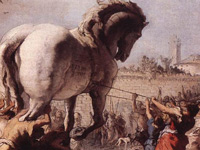
RESOURCES
This article uses material from the Wikipedia article "Trojan War", which is released under the Creative Commons Attribution-Share-Alike License 3.0.
© Stories Preschool. All Rights Reserved.
